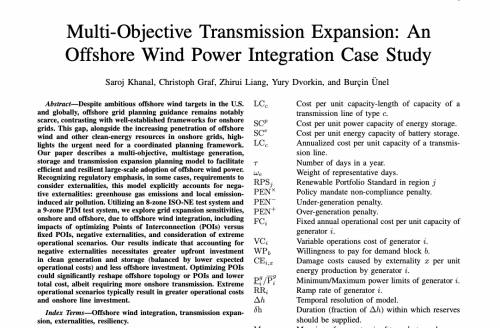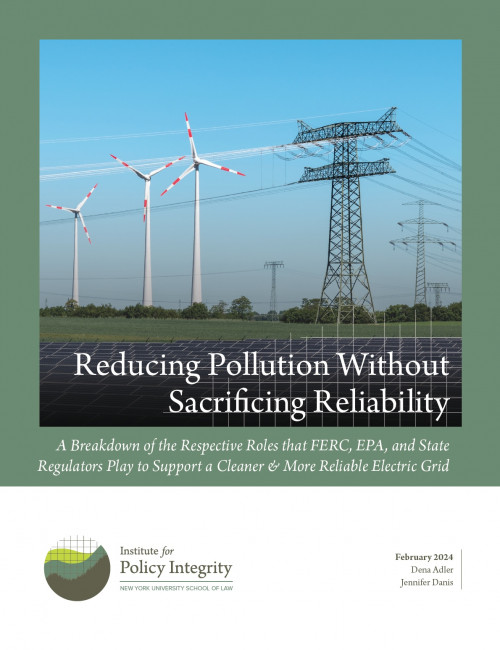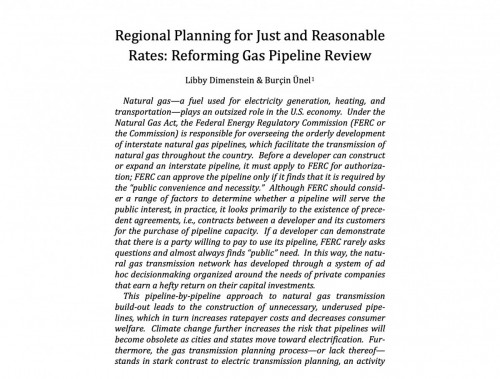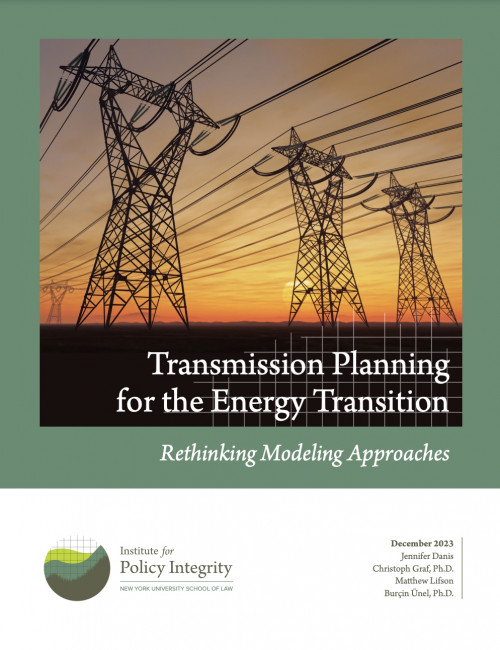-

Cost-Effective Capacity Markets
In this paper, available on SSRN, we develop a model of a wholesale electricity market with energy and capacity market components to examine the economic relationship between costs and reliability. We investigate the importance of efficient resource accreditation—the amount by which to compensate resources for their contribution to system reliability. We show that "marginal effective load carrying capability," an accreditation method increasingly adopted by system operators, is theoretically optimal.
-

Multi-Objective Transmission Expansion
An Offshore Wind Power Integration Case Study
Our paper describes a multi-objective, multistage generation, storage and transmission expansion planning model to facilitate efficient and resilient large-scale adoption of offshore wind power. Recognizing regulatory emphasis and, in some cases, requirements to consider externalities, this model explicitly accounts for negative externalities: greenhouse gas emissions and local emission-induced air pollution. Our results indicate that accounting for negative externalities necessitates greater upfront investment in clean generation and storage (balanced by lower expected operational costs). Optimizing POIs could significantly reshape offshore topology or POIs, and lower total cost. Finally, accounting for extreme operational scenarios typically results in greater operational costs and sometimes may alter onshore line investment.
-

Reducing Pollution Without Sacrificing Reliability
A Breakdown of the Respective Roles that FERC, EPA, and State Regulators Play to Support a Cleaner & More Reliable Electric Grid
Multiple federal and state regulators must coordinate their efforts to ensure electric grid reliability, particularly during a period of major transition, and it is important to understand what role each of them plays. This report reviews the respective roles of FERC, RTOs/ISOs, other transmission operators, state public utility commissions, and state environmental regulators. EPA’s duty to reduce GHG emissions that endanger public health and FERC’s duty to steward grid reliability will require them to coordinate each other’s respective expertise as they work with RTOs/ISOs, state regulators, and utilities to implement EPA rules.
-

Regional Planning for Just and Reasonable Rates: Reforming Gas Pipeline Review
Published in the Columbia Journal of Environmental Law
Natural gas plays an outsized role in the U.S. economy. Under the Natural Gas Act, the Federal Energy Regulatory Commission (FERC or the Commission) is responsible for overseeing the orderly development of interstate natural gas pipelines, which facilitate the transmission of natural gas throughout the country. FERC can approve the pipeline only if it finds that it is required by the “public convenience and necessity.” Although FERC should consider a range of factors to determine whether a pipeline will serve the public interest, in practice, it looks primarily to the contracts between a developer and its customers for the purchase of pipeline capacity. If a developer can demonstrate that there is a party willing to pay to use its pipeline, FERC rarely asks questions and almost always finds “public” need. This pipeline-by-pipeline approach to natural gas transmission build-out leads to the construction of unnecessary, underused pipelines, which in turn increases ratepayer costs and decreases consumer welfare. Climate change further increases the risk that pipelines will become obsolete as cities and states move toward electrification. Relying on economic theory, legal history, and policy analysis, we make the case in this paper—pulished in the Columbia Journal of Environmental Law— for FERC’s adoption of regional gas transmission planning.
-

Transmission Planning for the Energy Transition
Rethinking Modeling Approaches
This report examines the critical role of modeling details and assumptions that transmission planners frequently ignore. We first provide an overview of the wide array of choices planners have when designing traditional transmission planning models. We then discuss how planners need to rethink these choices to account for the rapidly evolving energy system and the additional uncertainties climate change brings. Finally, we present a modeling case study to show how important these modeling choices could be for transmission outcomes.
Viewing all publications in Electricity
